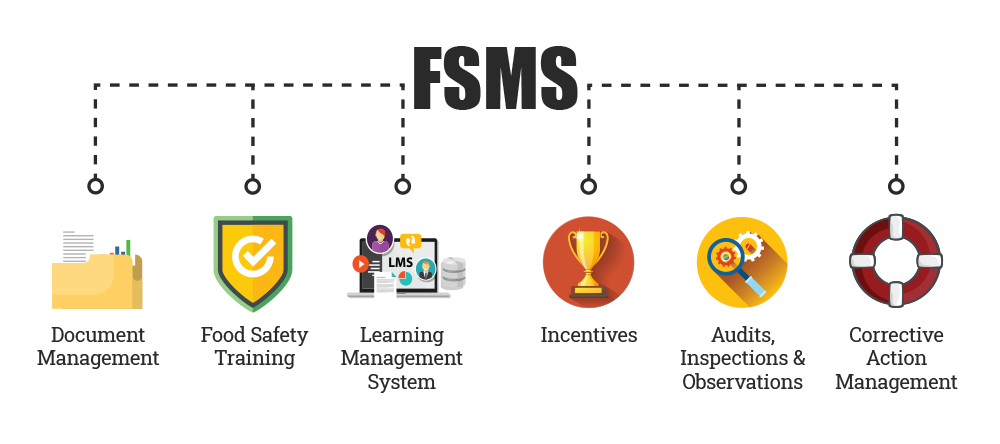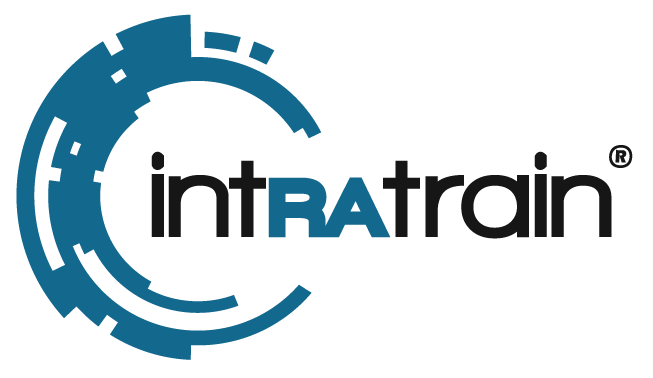Food Safety Management System
Build a Smarter, Safer Food Safety System- A strong Food Safety Management System (FSMS) protects consumers, employees, and your brand.
At intRAtrain™, we help organizations shift from reactive compliance to proactive risk management—reducing recalls, preventing contamination, and strengthening safety culture. An FSMS helps ensure the coordination of resources that defines the roles and responsibilities of the organization, management, and employees, creating a proactive approach to managing food safety and risk.
Why a Food Safety Management System (FSMS)?
An FSMS is more than a checklist—it’s a strategic framework that:
✅ Prevents foodborne illness, cross-contamination, and recalls
✅ Minimizes workplace safety incidents and non-conformances
✅Aligns with industry certifications (HACCP, SQF, GFSI)
✅ Supports regulatory compliance with digital documentation
✅ Empowers employees through targeted training and tools
✅ Drives continuous improvement across food safety operations
Whether you’re starting from scratch or upgrading your current program, intRAtrain’s FSMS helps you implement safe practices with confidence.
Our modular FSMS approach grows with your organization, helping you manage food safety risks, improve training, track performance, and meet regulatory requirements—all with tools designed for real-world results. The overall goal of the system is to achieve a level of continuous improvement through risk management, mitigation, and a reduction of non-conformities. Improvement results from knowledge and experience working within the system and information gathered from inspections, observations, and safety situations.
A Proactive Approach to Risk and Compliance
Traditional food safety programs are reactive—responding after an incident occurs. Our FSMS helps you stay ahead with:
- Clearly defined roles and responsibilities
- Hazard identification and critical control tracking
- Data-driven inspections and corrective actions
- Real-time performance monitoring
- Documentation that supports certification readines

Empower Your Team with Better Training
Your people are your greatest asset. Our food safety training library includes:
- Industry-specific, customizable courses
- Delivery for individuals, groups, or annual refreshers
- Courses designed for adult learners with testing included
- Hosted online, on-site, or via your existing LMS
All training supports operational safety, regulatory compliance, and a stronger food safety culture.
intRAtrain Food Safety libraries contain content designed for food related issues while our general safety module help ensure OSHA safety.
Go Paperless with Digital Audits and Inspections
Still tracking inspections and audits on paper? There’s a better way.
Our inspectiTRAC™ software simplifies audits, observations, and inspections with features like:
- Mobile data collection on any device
- Automated documentation for compliance and reporting
- Real-time corrective action assignment and tracking
- Behavior-based safety observation tools
- Centralized management of inspections across all sites
inspectiTRAC is available for all of your food safety assessments, safety audits, behavior-based observations, hazard inspections, and more. Ready to learn more? Schedule a demo today?
Tools That Drive Food Safety Success
Our FSMS toolkit includes integrated modules to help you manage:
- Planning and compliance
- Food hazard inspections and corrective actions
- Behavioral safety and employee engagement
- Policy and SOP management
- Regulatory readiness and audit prep
Our FSMS includes tools to assist with many of your specific needs. Some specific tools include:
- intRAtrain LMS
- Digital Asset Management
- Incentive Program Management
- Food Safety Consulting
Build a Smarter, Safer Food Safety System
A successful FSMS is built on more than policies—it’s built on people.
We help create a culture of shared responsibility by:
- Promoting safety ownership at every level
- Recognizing positive behaviors and team contributions
- Encouraging real-time reporting and feedback
- Using insights from audits, observations, and training to drive improvement
intRAtrain FSMS can help you:
Prevent workplace incidents and non-conformances- Identification and management of possible risks and areas of concern will reduce the chance incidents and non-conformances occurring.
Ensure compliance with laws and regulations including HACCP and SQF– Online documentation helps with reporting and assurance of completion of required tasks. A document management tool helps ensure accurate policies and procedures are available.
Reduce costs– Online documentation and automated verification reduce the time required for employees to complete monitoring thus freeing up time to do other activities that improve productivity.
Engage workers, increase productivity, and enhance culture– Engaged and appreciated employees will work to ensure safe practices that meet all regulations.
Reduce risk of food-borne illness and recalls- Defined processes assure employees know how to work safe and ensure the safety of the food
Create a culture where food safety is a shared value
Reach out today to learn more about how we can assist. Complete the form shown, and we will reach out to learn more.
